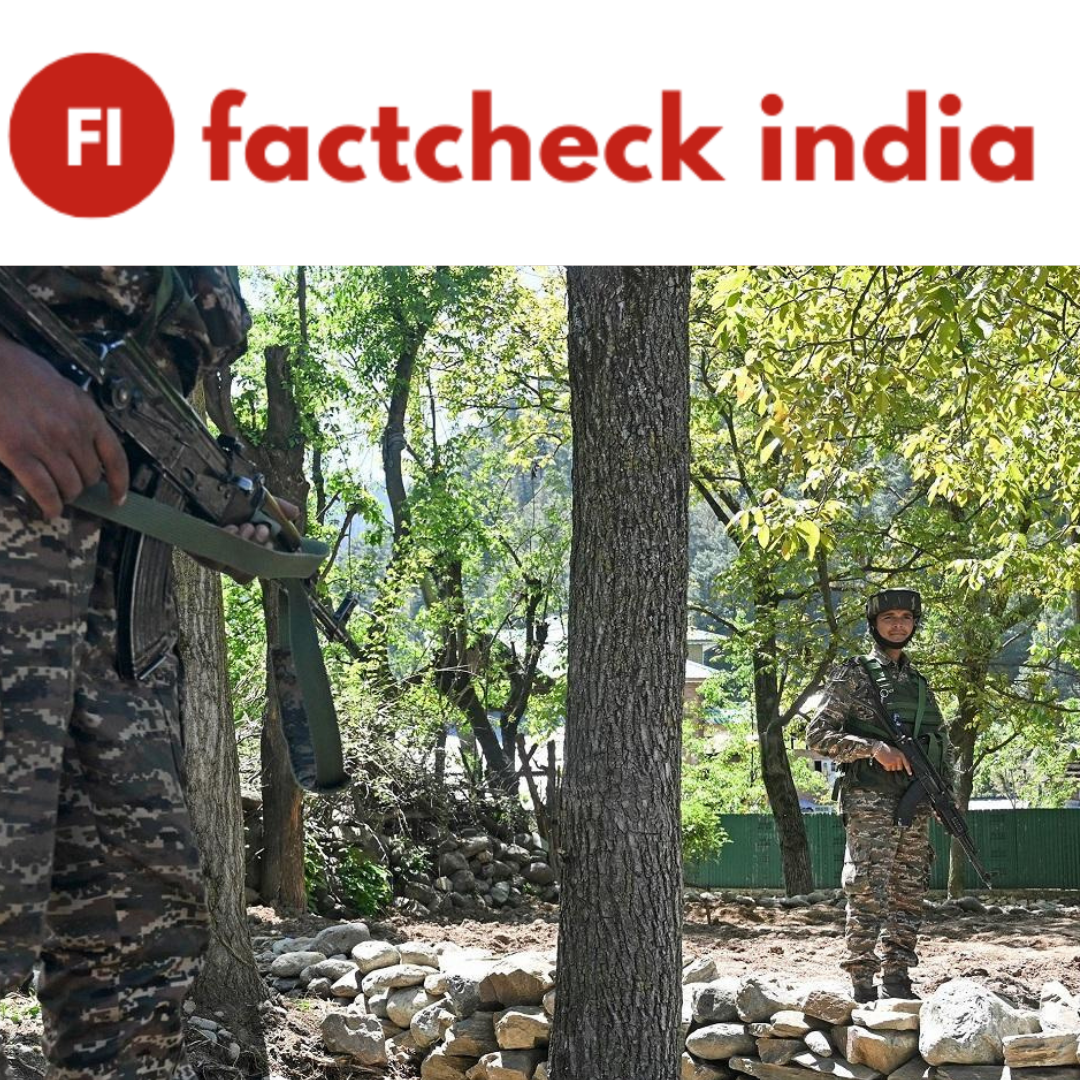In what marks a significant escalation in hostilities, the Pakistan Army has opened fire across the International Border in Jammu and Kashmir’s Pargawal sector. The firing, which took place late last night, comes amid already heightened tensions between the two countries following the recent Pahalgam terror attack.
The Claim
Multiple reports and breaking news alerts claimed that Pakistan resorted to unprovoked firing at the International Border in the Pargawal sector of J&K. It was further stated that this act was the most serious ceasefire violation since the massacre of civilians on April 22.
Fact:
On the night of April 29, 2025, the Pakistan Army opened fire across the International Border in the Pargawal sector of Jammu and Kashmir, marking the sixth consecutive day of ceasefire violations. The Indian Army confirmed the incident and responded to the unprovoked firing.
What We Found
FactCheck India has reviewed official statements from the Indian Army, recent ground reports from Jammu region correspondents, and inputs from government sources. Here’s what we verified:
- Yes, the Pakistan Army did open fire at Indian posts across the International Border in the Pargawal sector on the night of April 29, 2025.
- This marks the sixth consecutive night of ceasefire violations reported across different sectors along the Line of Control (LoC).
- The Indian Army confirmed the firing and noted that its troops responded effectively and proportionately to the unprovoked aggression.
- Ceasefire violations were not limited to Pargawal. Additional skirmishes were reported in three sectors of the Jammu region, suggesting coordinated provocations by Pakistan.
- This escalation comes just days after the Pahalgam terror attack, which left 26 civilians dead and triggered strong diplomatic and military responses from India.
The Diplomatic Fallout
India’s reaction to the Pahalgam massacre has been both swift and firm:
- On April 27, the Indian government revoked all visas issued to Pakistani nationals.
- India suspended the Indus Water Treaty of 1960, a historic bilateral agreement.
- The Attari-Wagah land border post was shut down indefinitely, cutting off direct land transit between the two nations.
These steps reflect India’s zero-tolerance policy toward cross-border terrorism and hostile actions by Pakistan.
Global Response
In light of the growing tension, UN Secretary-General António Guterres held separate phone conversations with Indian External Affairs Minister Dr. S. Jaishankar and Pakistani Prime Minister Shehbaz Sharif. The UN condemned the terror attack in Pahalgam and urged both countries to pursue justice through legal channels while avoiding further military escalation.
Guterres also offered the Good Offices of the United Nations to help de-escalate the conflict, recognizing the risk of confrontation spiraling into a wider regional crisis.
Final Verdict
True – The claim about Pakistan initiating cross-border firing at the International Border in J&K’s Pargawal sector is factually accurate.
The Indian Army has confirmed the incident, and it represents a continued pattern of ceasefire violations amid worsening bilateral ties. The escalation is directly tied to the fallout from the Pahalgam terror attack and India’s subsequent diplomatic countermeasures.

